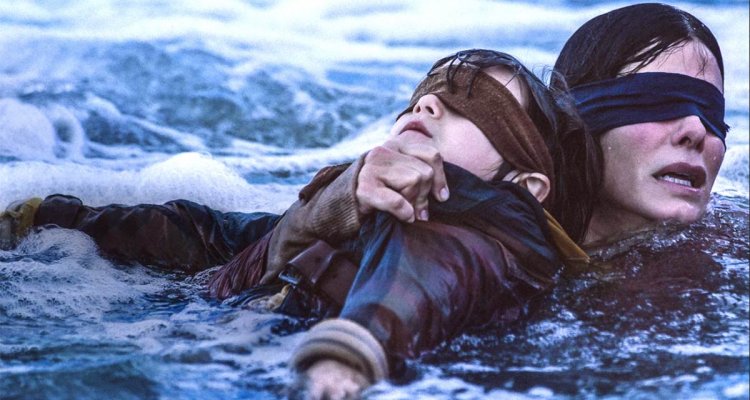Netflix isn’t very transparent when it comes to the numbers and viewership side of their business, and it’s hard to blame them. Once movie studios let the cat out of the bag in the 1980s and started reporting box office numbers to tout their massive successes, they also left themselves open and vulnerable to journalists discussing their flops, their financial losses, and failures. Which is why movie studios aren’t always fully transparent when it comes to budgets, promotion and advertising costs and more, the media already knows enough and turning a profit for a big studio movie tends to be actually extremely difficult when you factor in the cut theaters take and international studios that release the films abroad.
READ MORE: ‘Bird Box’ Is A Harmless B-Movie That Wastes Its Great Premise [Review]
Given all that, and how box office reporting backfired on studios, you can bet Netflix will never release its viewership numbers in the same way. However, the company has pulled back the veil a little bit this week, and they’re more than happy to start touting big successes minus any hard data or facts. Take “Bird Box,” the Sandra Bullock-starring supernatural post-apocalyptic horror/thriller directed by Academy Award-winning Danish filmmaker Susanne Bier (AMC’s “The Night Manager,” “After The Wedding”). When the movie, about supernatural entities that compel humans to commit suicide, debuted last week on December 21, it started trending on Twitter immediately, a somewhat rare phenomenon and it became the talk of social media. Perhaps that translated, as much as anything can with Netflix numbers, to a phenomenon at home because Netflix has reported that “Bird Box” has amassed the streaming networks’ biggest first week numbers—evidently 45 million people have already watched the movie so far.
The 100 Most Anticipated Films Of 2019
“Took off my blindfold this morning to discover that 45,037,125 Netflix accounts have already watched Bird Box — best first seven days ever for a Netflix film!” Netflix’s film Twitter account wrote.
Of course, many journos, analysts pundits and armchair media experts have espoused skepticism, given that Netflix has never provided any data to judge these numbers against. That’s compared to what? What was the highest viewed first-week film before that? Did that alleged 45 million subscribers watch the movie all the way through? We’ll never really know given Netflix’s anti-translucent stance.
Now translating this into comparable theatrical data is difficult, though some have speculated broadly, like screenwriter Brian Duffield, that at a rough $9 a pop, 45 million viewers convert into $405 million very approximately. But how many people watched per account? How many people are actually paying for that subscription and not sharing it with other family members? But it does speak to the Netflix model: no splitting costs with theaters, no costly prints struck or shipped across the planet, no major marketing campaigns, at least not to the tune of the mega-expensive TV campaigns usually put on for major releases, very little overheard comparatively, and a whole lot of profit.
Netflix has bowed to the pressure a little bit this year, mounting theatrical campaigns for the Coen Bros.’ “The Ballad of Buster Scruggs” and Alfonso Cuaron’s “Roma,” but these feel like exception and not the norm (it also helps these films are Oscar contenders, and they want more buzz than just a one-week qualifying run). “Bird Box” apparently received a theatrical run too, but damned if you can find it out there.
Adapted from a novel by Academy Award-nominated screenwriter Eric Heisserer (“Arrival”) “Bird Box” stars Sandra Bullock as a single mother trying to raise and protect two children through this post-apocalyptic hellscape (John Malkovich and Trevante Rhodes from “Moonlight” are among the co-stars). For all the fuss, well, here’s our review, but don’t underestimate the power of Sandra Bullock as a global star who’s just one TV remote click away.

